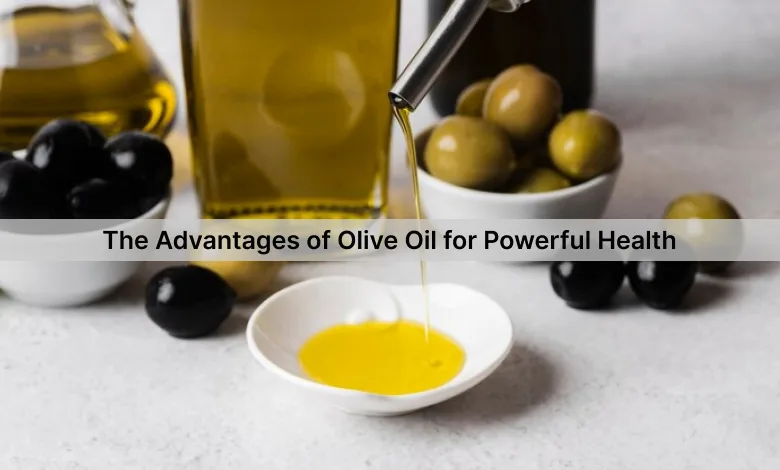Olive oil has numerous advantages for health such as its anti-inflammatory properties, capacity to reduce cholesterol levels, ward off heart diseases, and help reduce obesity. The benefits of all three have been linked to a decrease in the risk of developing heart disease, stroke, and type 2 diabetes. But the advantages of olive oil extend beyond those.
Anti-Inflammatory
Olive oil has components that hinder COX-1 and COX-2 enzymes, which play a role in inflammation. Inhibiting these enzymes will assist the body in fighting infections by reducing pain and swelling. A teaspoon daily amounts to 10 to 20 milligrams of Ibuprofen. Research has proven that low dosages of anti-inflammatory medications like olive oil provide important health advantages.
Olive oil is excellent in polyphenols, bioactive chemicals that possess potent antioxidant and anti-inflammatory benefits. Polyphenols can decrease harmful bacteria and increase the development of healthy bacteria. Apart from their anti-inflammatory properties, polyphenols are also proven antibacterial. If you suffer from health problems, you should use Fildena 150 to maintain your overall health.
Lowers the Chance of Getting Cancer
Olive oil is rich in oleic acid and is renowned for its anti-inflammatory qualities. It is also an effective antioxidant that reduces the chance of developing cancer. It has a healthy amount of fat: 14% is saturated, while the rest is polyunsaturated. It includes omega-3 and omega-6 fatty acids.
Reduces the Amount of Cholesterol
Olive oil is an excellent method for lowering cholesterol levels and eliminating harmful fats in food. The type of fat you choose to use is high in monounsaturated fatty acids, which can benefit the heart. They can lower your overall cholesterol levels and boost your healthy HDL cholesterol levels. High LDL cholesterol levels could result in heart disease and block the arteries. A high level of HDL cholesterol could help protect your heart from a heart attack.
Tablespoons of Olive Oil
Olive oil can benefit the heart, but you should use it cautiously. One tablespoon of olive oil contains approximately 40 calories, and consuming a lot of it can result in weight gain. It’s crucial to pick the correct olive oil suitable for your lifestyle because high-quality olive oil is rich in monounsaturated fats, which can reduce cholesterol.
Lowers the Risk of Developing Heart Disease
Although heart disease is among the most common causes of death in the United States, there are various things you can take to lessen your chances of getting it. A majority of health experts believe that living a balanced lifestyle and quitting smoking is the most effective way to guard your heart. Smoking increases the risk of developing heart disease through the hardening of your arteries, which reduces the quantity of cholesterol good that is present in your blood and leads to elevated blood pressure. Smoking less can decrease your chance of suffering from heart disease and help prevent problems like heart attacks.
Keep The Weight Of A Healthy Person
Regular exercise may also reduce cholesterol and blood pressure levels. Exercise lowers blood sugar levels and helps keep a healthy person’s weight. A healthy diet, as well as regular exercise, can reduce your risk of developing heart disease. If you’re a member of a family with a background of heart problems, consider making adjustments to your lifestyle that will reduce the risk of developing. If you’re overweight or obese, it’s essential to keep your weight in check. Engaging in regular exercise can reduce the risk of developing heart disease. The exercise doesn’t need to be strenuous. It is as easy as jogging or walking for 30-60 minutes every day of the week.
Lowers the Risk of Being Overweight
Obesity has become a significant problem in the modern world due to many reasons, such as the abundance of high-calorie food items and an unhealthy lifestyle. Before the advent of obesity, it was considered a significant advantage in survival since it demanded people to use more calories than they consumed. In the present, individuals should participate physically for various reasons, such as encouraging healthier weight management and lowering the risk of developing long-term illness. Furthermore, exercising improves the mood and eases anxiety.
Aids in Preventing Osteoporosis
Olive oil is an excellent alternative for women seeking to avoid osteoporosis. Several studies have shown that it can reduce osteoporosis risk and help various bone disorders. One study investigated the impact of supplementing olive oil with olives on bone mass in postmenopausal women.
Research suggests that the olive oil-rich Mediterranean diet can have a beneficial influence on bone density. It suggests the presence of monosaturated and polyphenolic fatty acids, which can prevent bone loss. The Mediterranean diet is also linked to lower rates of fracture and osteoporosis.
Biomechanical Force
The research results prove that olives, olive oil, and wastewater from olive mills can stop bone loss. Polyphenols found in olives can prevent bone loss by increasing the density of bone minerals. However, this effect may be ineffective in enhancing biomechanical strength. Osteoporosis results in a decrease in bone strength and fragility fractures. At the same time, fluctuations in bone mineral densities could predate modifications in the biomechanical force, and greater doses could be required for these results.
Reduces Cell Damage Due To Free Radicals
Free radicals can be a massive issue for our bodies. They destroy DNA and the cell membranes, which causes the membranes to split. This can lead to damage that causes cells to go out of existence. Free radicals may also change cells, which can cause their growth to cause tumors or cause other damage to cells.
Free radicals can affect a range of cell elements, including membrane lipids, proteins, and deoxyribonucleic acid. They also cause damage to DNA and cell membranes and have been connected to many human ailments. Scientists have also discovered that free radicals play an essential part in aging.
Antioxidants can reduce the formation of free radicals by interfering with them and neutralizing them. After stabilization, they are no longer a danger to our cells. Antioxidants can be used in a wide range of applications. These include the prevention and treatment of cardiovascular diseases, cancers of various kinds, and macular degeneration.





